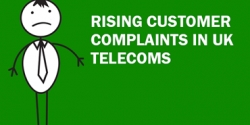The financial benefits of better customer experience

In an ever more competitive business world, the customer experience that companies offer can be a key differentiator in winning and retaining consumer loyalty. But how can you quantify this in financial terms? Many organizations that lead their industries for customer satisfaction also top the tables for revenue growth and profitability – but it can be difficult to isolate the part that service plays in their success, and measure it in financial terms.
To overcome this, analysts and consultants have looked at raw data and the impact of customer experience on key metrics such as repeat business. An article in the Harvard Business Review analyzed two large, billion dollar businesses and mapped a customer’s future spend against the satisfaction scores that the same consumer gave. It found that customers that gave the highest marks for the experience they received went on to spend more – in the case of a transaction-based business it was 140% more. Customers of a subscription-based organization who gave its experience 1 out 10 were likely to remain a member for just over a year. Those who marked it 10 out 10 continued to subscribe for another six years.
Adding to this, Forrester Research has just looked at the difference in revenue growth between customer experience leaders and laggards. In the US, it picked five sectors (cable communications, airlines, investments, retail and health insurance) and identified pairs of similar organizations in each. One company had significantly higher customer experience scores than the other. By looking at their revenue growth rates between 2010 and 2014 Forrester was able to ascertain whether there was a correlation between superior customer experience and revenue increases.
The key findings were that in four out of five sectors, there was a marked improvement, depending on how their quality of CX. However, it varied widely between industries – for example, in cable the CX leader saw growth of 35.4%, compared to 5.7% for the laggard. The only sector that showed little difference between the two was health insurance. The conclusion reached was that, as in the US most health insurance is paid for by employers, employees have little say in switching provider. Therefore, the customer experience that individuals receive has no impact on employer loyalty to the insurance provider.
As part of the research Forrester outlined the three ways that good customer experience positively impacts revenues:
- Retention – keep customers buying from your organization
- Enrichment – ensuring that customers buy more
- Advocacy – recommending your products and services to others
Their conclusions are that CX only makes a positive contribution to revenues in sectors when loyalty and retention is a factor. For that reason businesses need to ask themselves two questions:
- How easy is to customers to leave me for a competitor?
- Are there clear customer experience leaders and laggards in my industry?
From that they can plan how much impact that good CX has on their revenues.
Then again, focusing on revenues ignores how much bad service costs a company operationally. For example, if you don’t make it easy for your customers to find answers to their queries on your website then they may be forced to email you. Fail to answer their questions in a timely manner then they are likely to call. Each step not only adds to the customer’s frustration but it also increases costs dramatically. Analyst Contact Babel estimates that answering a telephone call in a UK contact center costs around £3.87 or £3.70 to respond to an email. In contrast, providing answers via your website has a negligible cost – and is available 24×7. So, delivering good service increases efficiency and prevents escalation of queries to more expensive channels – at the same time as reducing customer frustration.
As the research shows, customer experience has a direct impact on both revenue and efficiency, meaning that companies need to benchmark themselves against the competition and take steps to ensure they are leading their sector, rather than risking profits and customer loyalty by lagging behind.







Comments